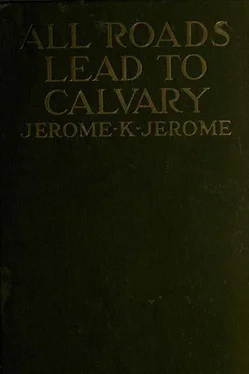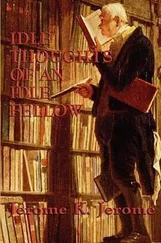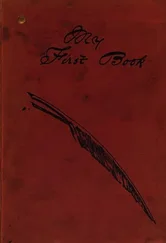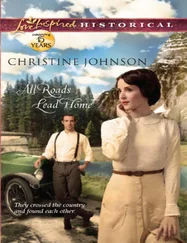Jerome Jerome - All Roads Lead to Calvary
Здесь есть возможность читать онлайн «Jerome Jerome - All Roads Lead to Calvary» весь текст электронной книги совершенно бесплатно (целиком полную версию без сокращений). В некоторых случаях можно слушать аудио, скачать через торрент в формате fb2 и присутствует краткое содержание. Город: London, Год выпуска: 1919, Издательство: Hutchinson & Co., Жанр: Классическая проза, на английском языке. Описание произведения, (предисловие) а так же отзывы посетителей доступны на портале библиотеки ЛибКат.
- Название:All Roads Lead to Calvary
- Автор:
- Издательство:Hutchinson & Co.
- Жанр:
- Год:1919
- Город:London
- ISBN:нет данных
- Рейтинг книги:3 / 5. Голосов: 1
-
Избранное:Добавить в избранное
- Отзывы:
-
Ваша оценка:
- 60
- 1
- 2
- 3
- 4
- 5
All Roads Lead to Calvary: краткое содержание, описание и аннотация
Предлагаем к чтению аннотацию, описание, краткое содержание или предисловие (зависит от того, что написал сам автор книги «All Roads Lead to Calvary»). Если вы не нашли необходимую информацию о книге — напишите в комментариях, мы постараемся отыскать её.
All Roads Lead to Calvary — читать онлайн бесплатно полную книгу (весь текст) целиком
Ниже представлен текст книги, разбитый по страницам. Система сохранения места последней прочитанной страницы, позволяет с удобством читать онлайн бесплатно книгу «All Roads Lead to Calvary», без необходимости каждый раз заново искать на чём Вы остановились. Поставьте закладку, и сможете в любой момент перейти на страницу, на которой закончили чтение.
Интервал:
Закладка:
They made a bed for him with their coats upon the floor, and some of them kept guard outside the shop, while one, putting aside the frightened, useless little chemist, waited upon her, bringing things needful, while she cleansed the foulness from his smooth young face, and washed the matted blood from his fair hair, and closed the lids upon his tender eyes, and, stooping, kissed the cold, quiet lips.
There had been whispered talk among the men, and when she rose the one who had first spoken to her came forward. He was nervous and stood stiffly.
“Beg pardon, nurse,” he said, “but we’ve sent for a stretcher, as the police don’t seem in any hurry. Would you like us to take him. Or would it upset him, do you think, if he knew?”
“Thank you,” she answered. “He would think it kind of you, I know.”
She had the feeling that he was being borne by comrades.
CHAPTER XVII
It was from a small operating hospital in a village of the Argonne that she first saw the war with her own eyes.
Her father had wished her to go. Arthur’s death had stirred in him the old Puritan blood with its record of long battle for liberty of conscience. If war claimed to be master of a man’s soul, then the new warfare must be against war. He remembered the saying of a Frenchwoman who had been through the Franco-Prussian war. Joan, on her return from Paris some years before, had told him of her, repeating her words: “But, of course, it would not do to tell the truth,” the old lady had said, “or we should have our children growing up to hate war.”
“I’ll be lonely and anxious till you come back,” he said. “But that will have to be my part of the fight.”
She had written to Folk. No female nurses were supposed to be allowed within the battle zone; but under pressure of shortage the French staff were relaxing the rule, and Folk had pledged himself to her discretion. “I am not doing you any kindness,” he had written. “You will have to share the common hardships and privations, and the danger is real. If I didn’t feel instinctively that underneath your mask of sweet reasonableness you are one of the most obstinate young women God ever made, and that without me you would probably get yourself into a still worse hole, I’d have refused.” And then followed a list of the things she was to be sure to take with her, including a pound or two of Keating’s insect powder, and a hint that it might save her trouble, if she had her hair cut short.
There was but one other woman at the hospital. It had been a farmhouse. The man and both sons had been killed during the first year of the war, and the woman had asked to be allowed to stay on. Her name was Madame Lelanne. She was useful by reason of her great physical strength. She could take up a man as he lay and carry him on her outstretched arms. It was an expressionless face, with dull, slow-moving eyes that never changed. She and Joan shared a small grenier in one of the barns. Joan had brought with her a camp bedstead; but the woman, wrapping a blanket round her, would creep into a hole she had made for herself among the hay. She never took off her clothes, except the great wooden-soled boots, so far as Joan could discover.
The medical staff consisted of a Dr. Poujoulet and two assistants. The authorities were always promising to send him more help, but it never arrived. One of the assistants, a Monsieur Dubos, a little man with a remarkably big beard, was a chemist, who, at the outbreak of the war, had been on the verge, as he made sure, of an important discovery in connection with colour photography. Almost the first question he asked Joan was could she speak German. Finding that she could, he had hurried her across the yard into a small hut where patients who had borne their operation successfully awaited their turn to be moved down to one of the convalescent hospitals at the base. Among them was a German prisoner, an elderly man, belonging to the Landwehr; in private life a photographer. He also had been making experiments in the direction of colour photography. Chance had revealed to the two men their common interest, and they had been exchanging notes. The German talked a little French, but not sufficient; and on the day of Joan’s arrival they had reached an impasse that was maddening to both of them. Joan found herself up against technical terms that rendered her task difficult, but fortunately had brought a dictionary with her, and was able to make them understand one another. But she had to be firm with both of them, allowing them only ten minutes together at a time. The little Frenchman would kneel by the bedside, holding the German at an angle where he could talk with least danger to his wound. It seemed that each was the very man the other had been waiting all his life to meet. They shed tears on one another’s neck when they parted, making all arrangements to write to one another.
“And you will come and stay with me,” persisted the little Frenchman, “when this affair is finished”—he made an impatient gesture with his hands. “My wife takes much interest. She will be delighted.”
And the big German, again embracing the little Frenchman, had promised, and had sent his compliments to Madame.
The other was a young priest. He wore the regulation Red Cross uniform, but kept his cassock hanging on a peg behind his bed. He had pretty frequent occasion to take it down. These small emergency hospitals, within range of the guns, were reserved for only dangerous cases: men whose wounds would not permit of their being carried further; and there never was much more than a sporting chance of saving them. They were always glad to find there was a priest among the staff. Often it was the first question they would ask on being lifted out of the ambulance. Even those who professed to no religion seemed comforted by the idea. He went by the title of “Monsieur le Prêtre:” Joan never learned his name. It was he who had laid out the little cemetery on the opposite side of the village street. It had once been an orchard, and some of the trees were still standing. In the centre, rising out of a pile of rockwork, he had placed a crucifix that had been found upon the roadside and had surrounded it with flowers. It formed the one bright spot of colour in the village; and at night time, when all other sounds were hushed, the iron wreaths upon its little crosses, swaying against one another in the wind, would make a low, clear, tinkling music. Joan would sometimes lie awake listening to it. In some way she could not explain it always brought the thought of children to her mind.
The doctor himself was a broad-shouldered, bullet-headed man, clean shaven, with close-cropped, bristly hair. He had curiously square hands, with short, squat fingers. He had been head surgeon in one of the Paris hospitals, and had been assigned his present post because of his marvellous quickness with the knife. The hospital was the nearest to a hill of great strategical importance, and the fighting in the neighbourhood was almost continuous. Often a single ambulance would bring in three or four cases, each one demanding instant attention. Dr. Poujoulet, with his hairy arms bare to the shoulder, would polish them off one after another, with hardly a moment’s rest between, not allowing time even for the washing of the table. Joan would have to summon all her nerve to keep herself from collapsing. At times the need for haste was such that it was impossible to wait for the anaesthetic to take effect. The one redeeming feature was the extraordinary heroism of the men, though occasionally there was nothing for it but to call in the orderlies to hold some poor fellow down, and to deafen one’s ears.
One day, after a successful operation, she was tending a young sergeant. He was a well-built, handsome man, with skin as white as a woman’s. He watched her with curious indifference in his eyes as she busied herself, trying to make him comfortable, and did nothing to help her.
Читать дальшеИнтервал:
Закладка:
Похожие книги на «All Roads Lead to Calvary»
Представляем Вашему вниманию похожие книги на «All Roads Lead to Calvary» списком для выбора. Мы отобрали схожую по названию и смыслу литературу в надежде предоставить читателям больше вариантов отыскать новые, интересные, ещё непрочитанные произведения.
Обсуждение, отзывы о книге «All Roads Lead to Calvary» и просто собственные мнения читателей. Оставьте ваши комментарии, напишите, что Вы думаете о произведении, его смысле или главных героях. Укажите что конкретно понравилось, а что нет, и почему Вы так считаете.












